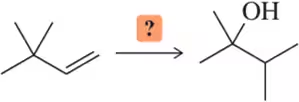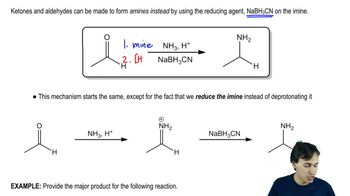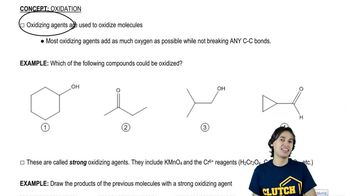How can the following compounds be prepared from 3,3-dimethyl-1-butene?
b. 3,3-dimethyl-2-butanol

 Verified step by step guidance
Verified step by step guidance Verified video answer for a similar problem:
Verified video answer for a similar problem:



 6:32m
6:32mMaster General properties of acid-catalyzed hydration. with a bite sized video explanation from Johnny
Start learning